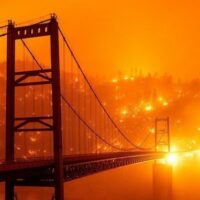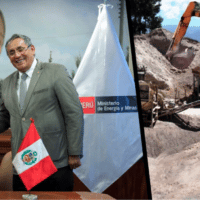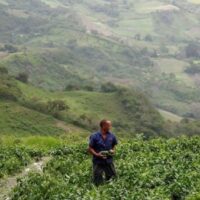-
The eco collapse we were warned about has begun
This accumulation of tragic evidence, against all the denialist narratives, makes it undeniable that the climate crisis is already here, among us.
-
FAO report refutes Venezuelan food crisis narrative
The most recent report from the Food and Agriculture Organization of the United Nations (FAO) has revealed positive news for Venezuela.
-
Nanoplastics are entering our bodies
The air is plasticized, and we are no better protected from it outdoors than indoors.
-
The rice bowl of the Chinese people is held firmly in their hands: The Twenty-Seventh Newsletter (2023)
In 2017, the World Bank determined that the income threshold for poverty, which had been set at $1.90 per day, was far too low. They set the new poverty line at $2.15 per day, which accounted for over 700 million people.
-
33,147,744 people in the United States currently face extreme weather alerts
Climate change is making weather more extreme. This tool shows how many people across the United States face risks right now from wildfires, flooding, tropical storms, or extreme heat.
-
Planet Earth is ‘quite sick’: 7 of 8 boundaries for safe and just world already breached, study says
“Nothing less than a just global transformation… is required to ensure human well-being,” researchers wrote.
-
Lessons in freedom: Agroecology, localization and food sovereignty
Farmers from across the Americas are working together to envision a new food system based on food sovereignty and political justice.
-
Dossier no. 65: Whose Land Is It and What Is It For? An Unfinished Debate About Land Access in Argentina
How is it that a country like Argentina, with its vast rural territory, longstanding agricultural tradition, and capacity to produce food for hundreds of millions of people, is plagued by hunger and malnourishment?
-
From net zero to glyphosate: Agritech’s greenwashed corporate power grab
Big agribusiness and ‘philanthropic’ foundations position themselves as the saviours of humanity due to their much-promoted plans to ‘feed the world’ with ‘precision’ farming’, ‘data-driven’ agriculture and ‘sustainable’ production.
-
For Argentina’s small farmers, the land is predictable but the markets are not: The Twenty-Third Newsletter (2023)
In 2021, the World Trade Organisation (WTO) noted that Argentina remains ‘a major exporter of agricultural products’, which, at that time, accounted for nearly two-thirds of the country’s exports (as of April 2023, agricultural goods accounted for 56.4% of the country’s exports).
-
Food for Thought: Pueblo a Pueblo Promotes Grassroots Food Sovereignty (Part IV)
An innovative form of food distribution has been key for schools and communes.
-
Colorado River water deal: a bandaid or real progress?
The recent Colorado River water deal reached between the three lower basin states of California, Arizona and Nevada is being celebrated by the corporate media as “historic,” although final approval by the Department of Interior is still pending.
-
The illuminating influence of Eric Huntley
When I sat down with Eric Huntley it was under the premise of interviewing him about the new community garden that he has established—along with filmmaker and organiser Sukant Chandan—in the London borough of Ealing, just minutes away from where he and his late-wife, Jessica Huntley, ran their bookshop and publishing house.
-
Nicaragua: What we learned about agroecology
“Why did we choose to study in Nicaragua? Hunger, poverty, and illiteracy are major issues plaguing much of the world, and climate change is one of the greatest threats to humans on the planet. Nicaragua is setting an example for sustainable development that addresses all these issues.”
-
Japan needs to reconsider wastewater discharge plan
It may be recalled that after Japan alarmingly announced in April 2021 its plan to start releasing around 1.3 million metric tons of contaminated wastewater from the destroyed Fukushima nuclear plant into the sea, countries in the rest of eastern Asia and the Pacific region protested. Environmental groups and even the Japanese people opposed it.
-
Biden approves huge oil extraction project in Alaska
In an action that is a flat reversal of his election campaign pledge of “no more drilling on federal lands,” President Joe Biden decided Monday to approve an $8 billion oil drilling project on Alaska’s North Slope, to be operated by ConocoPhillips.
-
Imperialism and natural resources
There is an overwhelming asymmetry between the level of “development” and the possession of natural resources among countries of the world.
-
Researchers warn of climate ‘doom loop’ as impacts forestall Green Energy transition
“It’s too late to avoid the climate storm altogether,” said a study co-author. “Our ability to steer out of the storm is frustrated by having to manage the impacts of the storm on the ship.”
-
Peru’s natural resources: CIA-linked U.S. ambassador meets with mining and energy ministers to talk ‘investments’
Peru has large reserves of copper, gold, zinc, silver, lead, iron, and natural gas. After a coup overthrew left-wing President Pedro Castillo, the US ambassador, CIA veteran Lisa Kenna, met with mining and energy ministers to discuss “investments”. Europe is importing Peruvian LNG to replace Russian energy.
-
Venezuela’s Seed Law should be a global model
For peasant farmers, the battle over seed rights is critical to their livelihoods.

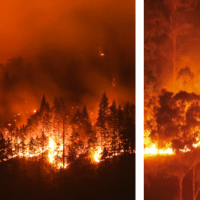



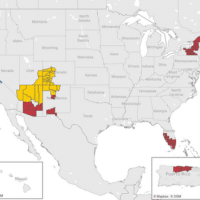

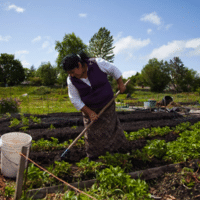
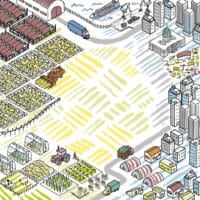

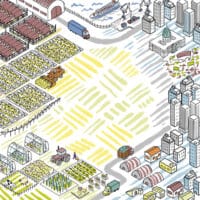
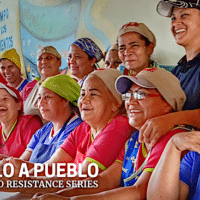
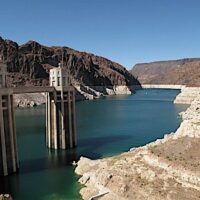

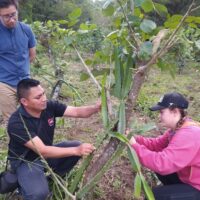
![An aerial view shows the storage tanks for treated water at the tsunami-crippled Fukushima Daiichi nuclear power plant in Okuma town, Fukushima prefecture, Japan Feb 13, 2021, in this photo taken by Kyodo. [Photo/Agencies]](https://mronline.org/wp-content/uploads/2023/04/642631c4a31057c4b4b84bb5-200x200.jpeg)
![BP workers, in the background, remove insulation from an oil transit pipeline at the Prudhoe Bay oil field on Alaska's North Slope. [AP Photo/Al Grillo]](https://mronline.org/wp-content/uploads/2023/03/b41a59eb3d35eed07a4ccbb832fc4adf3c3770bd-200x200.jpg)

